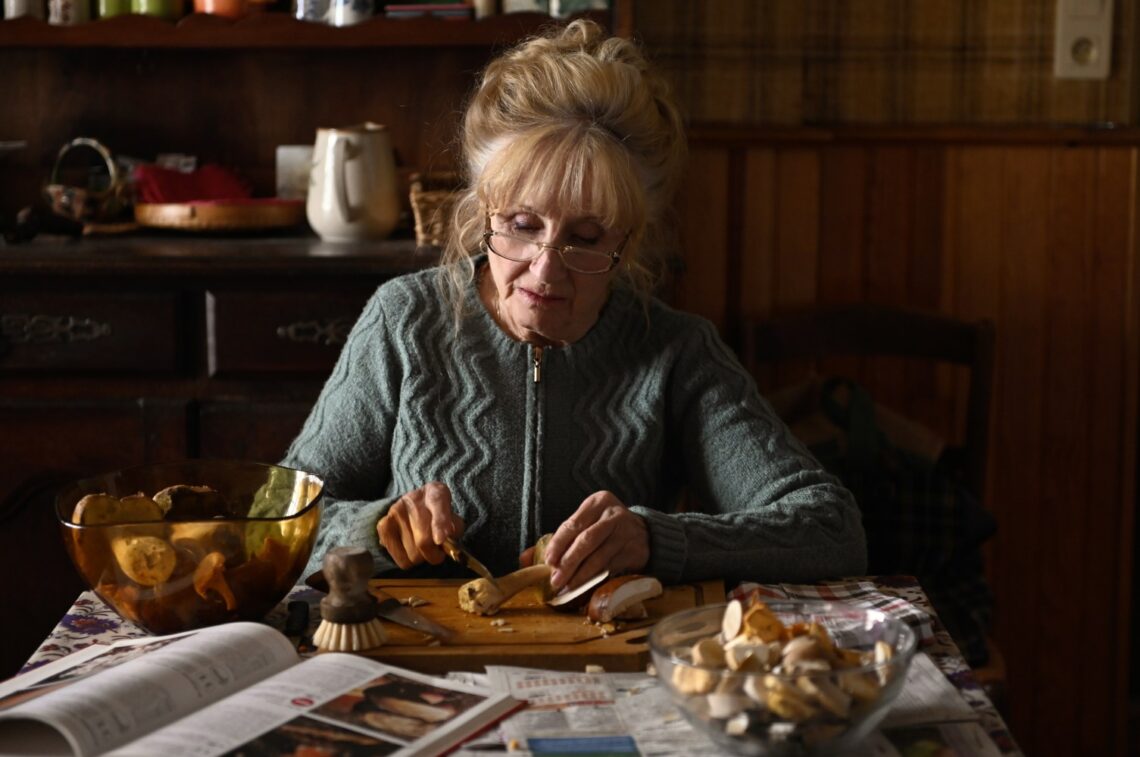A season of secrets: François Ozon’s “When Fall is Coming”
A picturesque autumn that never ends
François Ozon’s latest film, When Fall is Coming, immerses viewers in a perpetual autumn, capturing the essence of what younger generations might call “autumncore” with a touch of “cottagecore.” Set in the serene Burgundy valley, the film’s visuals are rich with rusting leaves, cozy knitwear, and a palpable chill in the air. However, as the narrative unfolds over months and years, the weather remains unchanged, mirroring the life of the film’s protagonist, Michelle, played by Hélène Vincent. This unchanging autumnal backdrop sets the stage for a story that transitions from quiet melancholy to something far more sinister.
A masterful tonal shift
Ozon, known for his unpredictable storytelling, shifts gears from the high-camp antics of his previous works to a more subdued, contemplative mode in When Fall is Coming. The film begins as a gentle character study of Michelle, a sweet-natured retiree, but gradually morphs into a suspenseful thriller. This transformation is reminiscent of the works of Simenon, where the bucolic tranquility of Michelle’s life is disrupted by emotional turmoil and potential criminal activity. Ozon’s narrative deftly explores the complexities of aging, reminding us that our elders are not always as benign as they seem.
A life of routine and hidden tensions
Michelle’s life is depicted with meticulous detail, from her church-going routines to her solitary pleasures. One afternoon, she picks pumpkins from her garden, makes soup, and sets a dinner table for one with ritualistic precision. Her home, filled with mementos, shows no sign of a husband, past or present. Her closest relationship is with her best friend, Marie-Claude, played by Josiane Balasko, whose son Vincent, fresh out of prison, is treated by Michelle with a mother’s forgiving patience.
Marie-Claude, however, is less trusting of her son, highlighting the complexities of parental relationships. Michelle’s own daughter, Valérie, portrayed by Ludivine Sagnier, is a stark contrast. Bitter and resentful, Valérie’s visits from Paris are filled with hostility, which Michelle endures for the sake of her beloved grandson, Lucas. The tension between mother and daughter escalates when a dinner of foraged wild mushrooms lands Valérie in the hospital, leading Michelle to question her own intentions.
A narrative of subtle surprises
The film’s script, co-written by Ozon and Philippe Piazzo, is filled with subtle shifts in story and character perception. These pivots are not contrived twists but rather natural progressions that reveal deeper truths about the characters. Michelle’s internal struggle, wondering if she subconsciously wished harm upon her daughter, is the first of many such revelations. The film’s strength lies in its ability to surprise viewers without resorting to overt plot twists, instead relying on the arbitrary cruelty of fate and the volatility of human nature.
A showcase of nuanced performances
Hélène Vincent, a veteran of French stage and screen, delivers a masterful performance as Michelle. The film is built around her presence, with cinematographer Jérome Alméras capturing her every nuanced expression in a warm, autumnal palette. Vincent’s portrayal of Michelle’s internal conflicts—shame, defiance, guilt, and curiosity—is both subtle and powerful.
Supporting performances are equally strong. Josiane Balasko brings a mix of geniality and occasional harshness to her role as Marie-Claude, while Pierre Lottin, known for his comedic roles, surprises with a layered performance as Vincent. His character’s outward goofiness hides deeper moral contradictions, adding to the film’s theme that people are rarely what they seem.
A reflection on aging and identity
When Fall is Coming is a film that delves into the complexities of aging, identity, and the hidden depths of seemingly ordinary lives. Ozon’s perceptive storytelling and the film’s rich, autumnal visuals create a compelling narrative that resonates with older arthouse audiences. The film’s exploration of the past and its impact on the present is a reminder that as winter and mortality approach, the past holds less sway over our lives.
Did you enjoy this article? Share it on your social channels and let us know your thoughts! Don’t miss out on the latest updates! Follow us on social media to stay informed about the newest releases.

 Italian
Italian







